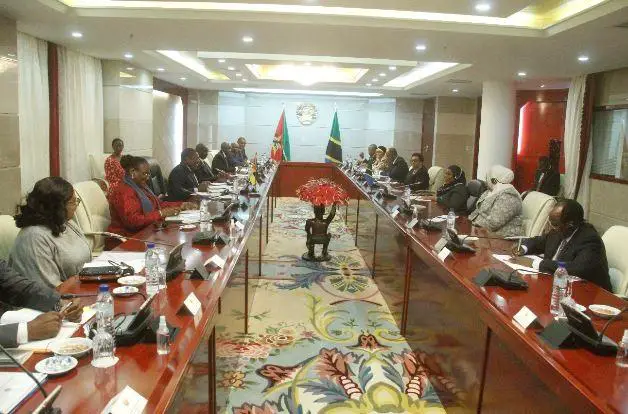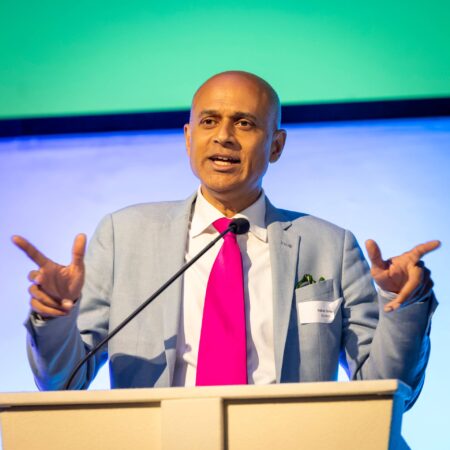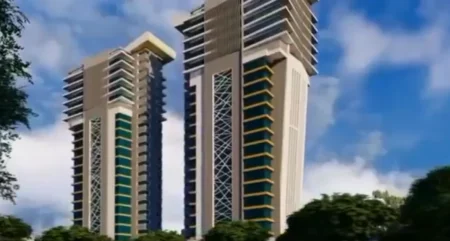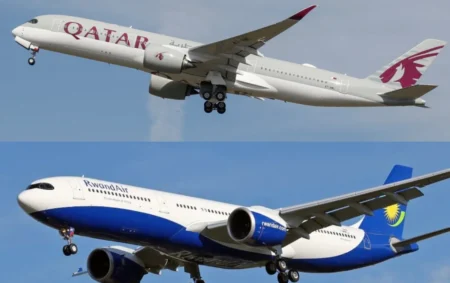Promising recent resource finds in Mozambique and Tanzania bode well for Africa’s future. Exploration is being pursued with renewed vigour, and the world’s energy companies are keenly eyeing the continent.
Mozambique and Tanzania have signed two cooperation agreements in Maputo, focusing on combating terrorism and fighting crime. Mozambique is currently fighting Islamist militants in the country’s gas-rich northern Cabo Delgado region.
- Mozambique and Tanzania have signed two cooperation agreements in Maputo, focusing on combating terrorism and fighting crime.
- In addition to fighting jihadists, President of Mozambique Filipe Nyusi said the two countries were currently focused on exploiting hydrocarbons, which form the building blocks of vital energy sources like coal and gas.
- Before, Tanzania Communications Regulatory Authority also committed to scaling up communication cooperation with its Mozambican counterpart through the Communications Regulators’ Association of Southern Africa.
In addition to fighting jihadists, President of Mozambique Filipe Nyusi said the two countries were currently focused on exploiting hydrocarbons, which form the building blocks of vital energy sources like coal and gas.
The agreements were signed as part of a four-day official visit that Tanzania’s President Samia Suluhu Hassan is making to Mozambique.
Tanzania is not immune to the unrest afflicting northern Mozambique, which has occasionally spilt over the border, so any decision to push ahead with the onshore project will also be made regarding the security situation.
According to the Jornal Domingo online reports, President Filipe Nyusi said it is necessary to exploit the advantage of the countries being neighbours, especially concerning the negotiation of contracts for the exploitation of hydrocarbons. This item is, in fact, one of the great weaknesses of the States.
Mozambique will be the first of the two countries to export liquefied natural gas, which should happen in the coming days, through the Coral Sul offshore project, in Area 4 of the Rovuma Basin, concludes the ‘Domingo’ online report.
According to figures from the Observatory of Economic Complexity (OEC), a global data visualization tool for international trade, as of 2020, Tanzania exported US$114 in Crude Petroleum, making it the 126th largest exporter of Crude Petroleum in the world. In the same year, Crude Petroleum was the 863rd most exported product in Tanzania. The main destination of Crude Petroleum exports from Tanzania is the United Arab Emirates.
In 2020, Tanzania had a positive net trade in crude petroleum with South Africa. Tanzania exported US$36 Million in Refined Petroleum. The main destination of Refined Petroleum exports from Tanzania is Zambia, Uganda, Kenya, the Democratic Republic of the Congo, and Burundi.
The fastest growing export markets for Refined Petroleum of Tanzania between 2019 and 2020 were Burundi, Burkina Faso, and Singapore.
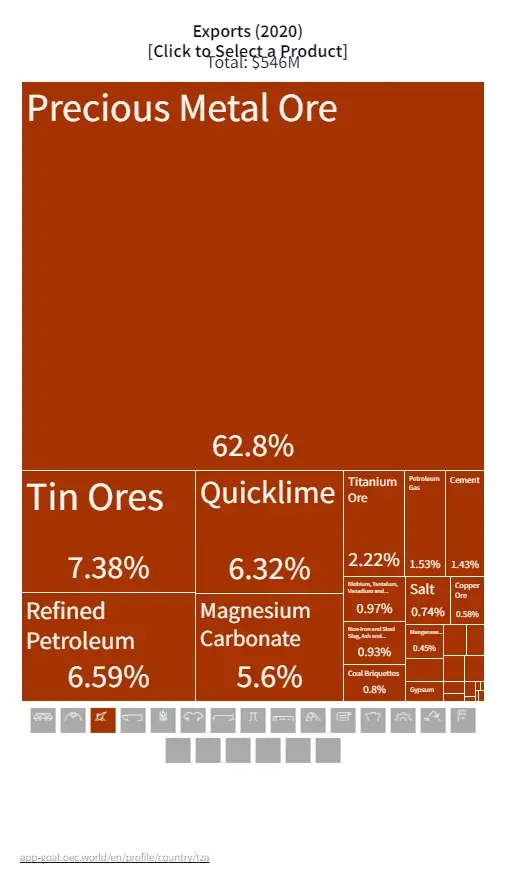
Tanzania has signed a framework agreement with Norway’s Equinor and Britain’s Shell that will bring them closer to starting construction on a US$30 billion project to export liquefied natural gas (LNG).
The deal foresees a final investment decision by 2025 and a start of operations by 2029-2030 at a liquefied natural gas plant to be built in Tanzania’s southern coastal town of Lindi.
“We have never reached this stage of natural gas development in the history of our country,” Energy Minister January Makamba said during the signing ceremony in the capital Dodoma.
“This project will significantly change our economy,” Makamba said.
“Tanzania’s geographical positioning makes it easy to transport the natural gas to other countries, especially Asian (ones), which are looking for new sources of energy.”
Tanzania’s President Samia Suluhu Hassan, also present, welcomed the preliminary agreement.
“We have reached a good stage of discussions about the LNG project, but much work is still waiting for us to talk and make it competitive,” she said.
The Italian multinational Eni is also interested in obtaining rights to more hydrocarbon prospecting areas in Mozambique.
Giorgio Vicini, general director of Eni Rovuma Basin, the Coral Sul FNLG project operator, confirmed in an interview with Notícias. He said the company was participating in Mozambique’s 6th Licensing Round for the Concession of Hydrocarbon Exploration and Production Areas, promoted by the country’s National Petroleum Institute (INP), having pre-qualified in the first phase.
Vicini explained that Eni is now carrying out technical assessments to decide which areas to compete.
“We are interested in the 6th Licensing Round organized by the INP. Eni qualified as an operator in the first phase of the tender, and we are now carrying out technical assessments to choose the areas we will compete for,” Vicini said, without advancing further details.
According to an article by International Trade Administration dated March 10, 2021, all exploration concessions are assigned by the National Petroleum Institute (INP) through public tenders. Production contracts are negotiated once petroleum reserves are discovered.
In 2018, INP signed a concession contract for petroleum exploration and production in offshore blocks in the Angoche and Zambezi Basins and onshore blocks in the Mozambique Basin to four consortiums led by ExxonMobil, Sasol, ENI, and Buzi. As of June 2020, none of these operators had started exploration or production activities in these blocks.
Empresa Nacional de Hidrocarbonetos (ENH), the state-owned hydrocarbon company, represents the Mozambican Government in petroleum operations. The law stipulates that ENH participate as a stakeholder in petroleum production operations and exploration projects. ENH is also engaged in other national flagship projects, such as the oil and gas terminal expansion in the Port of Pemba and the urbanization of the district of Palma, where the Area 1 and 4 natural gas business activities will be concentrated. In partnership with the Korean gas company Kogas, ENH is also operating a gas distribution network to provide households and industry with piped gas in the south of Mozambique.
The INP announced in July that the deadline for the Mozambique 6th Licensing Round had been extended to November 11, 2022. Results are scheduled to be announced on December 30, 2022.
Read: Mozambique fires up export terminal targeting LNG exports to Europe
Meanwhile, Tanzania Communications Regulatory Authority (TCRA) committed to scaling communication cooperation with its Mozambican counterpart through the Communications Regulators’ Association of Southern Africa (CRASA).
The director of Licensing and Compliance with TCRA, John Daffa, said the authority would share with the visitors all the valuable regulatory experience that will help them in improving telecommunication services in Mozambique.
“We are confident that the cooperation between the two regulatory bodies would develop the sector in respective countries. Our experts will share TCRA skills in managing communications from a modern point of view,” said Daffa, who served as the acting managing director.
INCM’s head of delegation, Francisco Chate, expressed the expectations of his team to learn from TCRA’s competence in technological experience in managing telecommunications technology and services in the continent.
“In our view, TCRA has valuable knowledge to share with us, particularly regarding how best to manage and enhance communications services, particularly telephone and internet services,” said Chate INCM, member of the board of directors.





